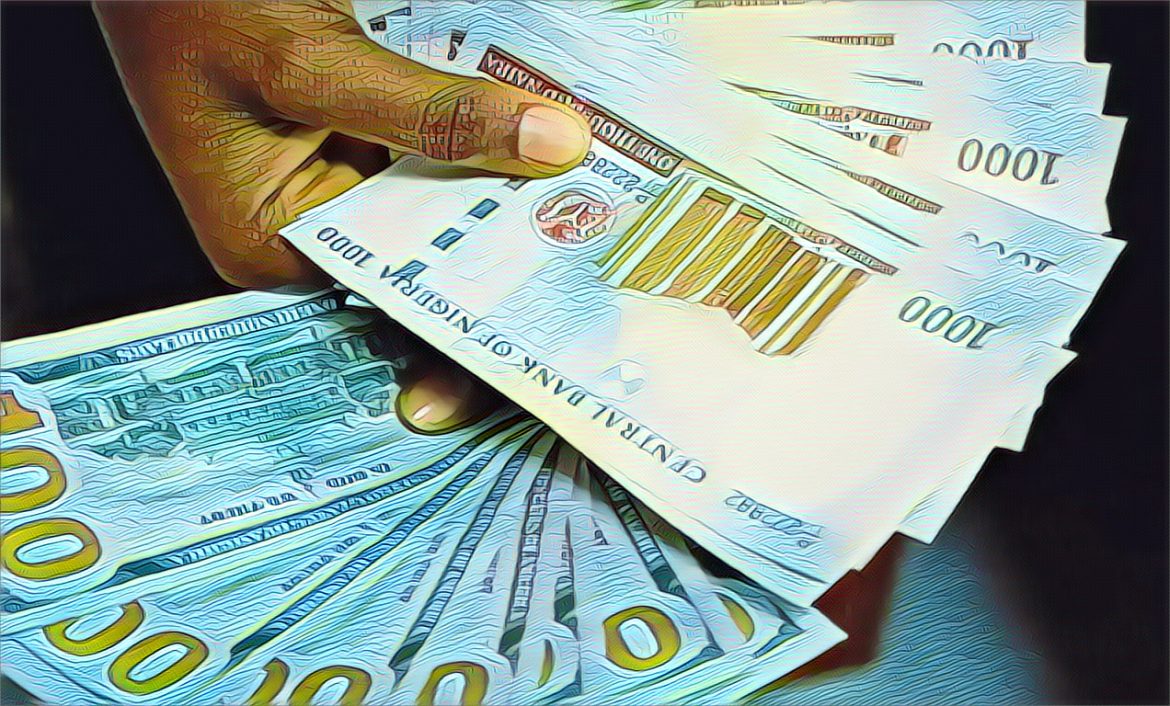The Nigerian naira has plummeted to a historic low of N1507.83 to the dollar in the parallel market, sparking concerns over the country’s economic stability. This sharp depreciation underscores the mounting pressures on Nigeria’s foreign exchange market and highlights broader economic challenges.
The decline in the naira’s value is largely attributed to a combination of factors, including decreased oil revenues, dwindling foreign reserves, and increased demand for foreign currency. Nigeria, Africa’s largest oil producer, relies heavily on oil exports for its foreign exchange earnings. However, fluctuating global oil prices and reduced production have significantly impacted the nation’s revenue.
Economic experts warn that the weakening naira could lead to higher inflation and increased cost of living for Nigerians. “The rapid depreciation of the naira is alarming and poses significant risks to the economy,” said Dr. Bismarck Rewane, CEO of Financial Derivatives Company. “We are likely to see a rise in prices of goods and services, which will affect the purchasing power of the average Nigerian.”
The Central Bank of Nigeria (CBN) has been under pressure to stabilize the currency and manage the foreign exchange market. In response to the naira’s decline, the CBN has implemented various measures, including tightening monetary policy and restricting access to foreign exchange for certain imports. Despite these efforts, the parallel market rate continues to diverge significantly from the official exchange rate, currently pegged at around N461 to the dollar.
Many businesses and individuals turn to the parallel market due to the limited availability of foreign currency through official channels. This situation has created a thriving black market where the naira’s value is determined by supply and demand dynamics. The widening gap between the official and parallel market rates has fueled speculation and further exacerbated the currency’s volatility.
In addition to the challenges in the foreign exchange market, Nigeria’s economic woes are compounded by other structural issues. The country faces high unemployment rates, inadequate infrastructure, and persistent insecurity, all of which hinder economic growth and development. The government has launched various initiatives aimed at diversifying the economy and reducing dependence on oil, but progress has been slow.
The impact of the naira’s depreciation is being felt across various sectors. Import-dependent industries, such as manufacturing and retail, are particularly hard-hit, as the cost of raw materials and finished goods increases. Small and medium-sized enterprises (SMEs) are also struggling to cope with rising expenses, which threaten their survival.
For ordinary Nigerians, the weakening naira translates to higher prices for everyday goods, from food items to fuel. This has led to increased financial strain on households, many of whom are already grappling with economic hardship. “Life has become much harder with the rising cost of living,” said Chinyere Okeke, a trader in Lagos. “Everything is more expensive now, and it’s difficult to make ends meet.”
The Nigerian government has reiterated its commitment to addressing the economic challenges and stabilizing the naira. Finance Minister Zainab Ahmed emphasized the importance of implementing comprehensive economic reforms to attract investment and boost growth. “We are working diligently to create a more stable and resilient economy,” Ahmed said. “This includes measures to improve foreign exchange management and support key sectors.”
Despite the current challenges, there is hope that with the right policies and sustained efforts, Nigeria can navigate this turbulent period and achieve long-term economic stability. The government’s focus on diversification and structural reforms is seen as crucial for building a more robust and sustainable economy.
As Nigeria grapples with the fallout from the naira’s depreciation, the need for concerted action and strategic planning is more critical than ever. The path to recovery will require collaboration between the government, private sector, and international partners to create an environment conducive to economic growth and development.
Source: tribuneonlineng.com


